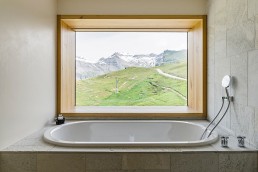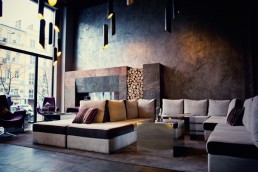The Coronavirus crisis has accelerated trends predicted to develop over the next decade into the here-and-now, reports Sleeper Editor-at-Large Guy Dittrich from Design Hotels’ 2020 virtual forum.
Design Hotels is known for its forward-looking mindset. Established in 1993 the hotel collective was a catalyst for the boutique hotels movement, and currently counts 321 members. It is part of Marriott International and led by CEO Peter Cole, who formerly held regional and global finance roles at Marriott and The Ritz-Carlton Hotel Company. From 2004, Design Hotels has held its Future Forums – an annual member hotel event now called Arena*. London-based futurologists The Future Laboratory have regularly presented their views of the new and next at these events. So it comes as no surprise when the agency was commissioned to prepare a report – Future Traveller 2030 – which was presented at the 2019 Arena* in Tbilisi, Georgia, and explored in detail the mindset of the future traveller. Building on this content, Cole hosted a virtual meeting in July 2020, focusing on the stories of three Originals – the Design Hotels term for the people behind the projects.
The report introduced the idea of the Promadic Traveller – nomads unified by a desire for more purposeful and meaningful travel; a prescient prediction in the context of our current pandemic predicament. What was expected to develop over a decade is happening now, with shifts in purpose and value accelerated by the Covid-19 crisis. “It was not the wrong path we took,” says Cole. “We have just hurtled down that path much faster than we expected”.
Presenting an upbeat if cautious assessment of the travel industry comeback, describing its trajectory as an “upward sloping wiggle” – a positive recovery but with some dips along the way, Cole looked to flight and hotel search data to predict that domestic, short-notice leisure travel in the economy and mid-scale sectors will be first to pick up, with drive-to-destinations also set to fare well.
Of the Promadic Traveller, Ksenia Starikova, Vice President Brand Experience at Design Hotels, noted that travel patterns are becoming increasingly intentional, with more planning and searching for truly connected experiences. “The consumer becomes the producer,” she asserted of this more conscious profile, who rather than being satisfied with zero-baseline impact wants to go further, and seek out offers that allow them leave a positive impact. We can find parallels with the ideas of the BLM movement, in that it is no longer sufficient to be non-racist (neutral) but to be anti-racist (proactive). The Promadic Traveller is more responsible, looking to contributory and participatory experiences that allow them to be more self-aware and have a greater sense of wellbeing. Optimistic this may seem, but The Future Laboratory has a good record for anticipating the upcoming Zeitgeist.
Cole suggests that this move towards elevated experiential travel taps into notions of the Slow movement, encouraging a deeper local connection and immersive wellbeing. Supporting these ideas are stories from Originals. Daniel Lauber is the man behind Cervo Mountain Boutique Resort, Zermatt, Switzerland – a reimagined 40-room former hunting lodge. The hotel includes a spa, and promotes a holistic approach to wellbeing. “We offer a balance of guiding people to find themselves – not in a pushy way – but also to have fun,” Lauber explained. “The hotel is more of a hub, one that gives you the chance to go beyond exploring – to be local and also be yourself.” Lauber is taking the opportunity of the Covid-induced slow-down to bring forward a planned refurbishment.
At La Bandita Townhouse, a 12-rooms-with-restaurant set-up in the small Tuscan village Pienza, Original John Voightmann has a strong belief in the power of community. “We opened as soon as we were allowed by the authorities to help lead the community,” he explained. “People want to feel the realness of Italian hospitality, so our product doesn’t have to change because of the pandemic.”
Elsewhere, The Node Hotel occupies a spot in central Kyoto, the historic Japanese city currently experiencing something of a mini-boom driven in part by the impact of the forthcoming (postponed) Tokyo Olympics. The hotel builds on its strong art collection to develop deeper local connections by hosting collaborative exhibitions, pop-up shops and guest gallerists. “Leisure and business travellers are coming back, but only slowly,” says Aya Aso of the 25-key hotel, notable for its provocative monochromatic interiors.
With an eye on remaining ahead of the curve, Cole continues to drive the forward-looking attitude associated with Design Hotels. How accurate will the ideas of Promadic travel be? Only time will tell. As laudable as the notion of travellers being givers rather than takers are other scenarios; what of a repeat of the Roaring Twenties and its show of wealth and excess? Some sort of celebratory escape seems likely once tangible progress is made in managing the initial impact of Covid and preparing for any potential second waves. The likelihood of this outcome will depend on how long and deep the economic impact of the current crisis proves. Alternatively, the increasing disparity between rich and poor will perhaps see shows of indulgence considered vulgar. Could this lead to a reduction in the need for hotels to have that ‘Instagram moment’? A less-is-more consciousness could prevail. In the meantime, however – and in spite of the ongoing crisis – memories can prove short, and we may well see things go back to normal before the emergence of any new normal.
CREDITS:
Words: Guy Dittrich
Related Posts
29 October 2018
Axor partners with Design Hotels
3 December 2012



